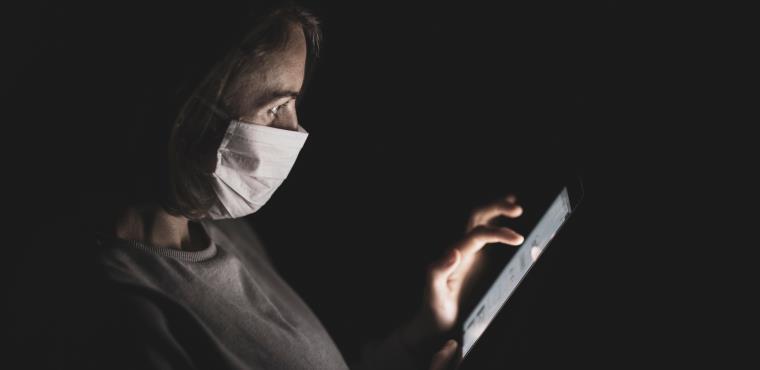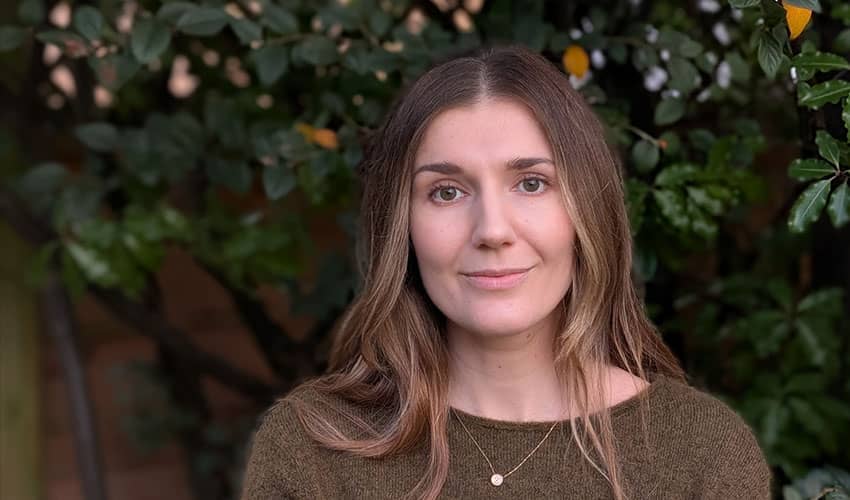Rheumatology patients shielding during pandemic struggling with return to normal life, research reveals

Rheumatology patients who shielded during the pandemic are finding it difficult to return to normal life following the lifting of restrictions, academics at UWE Bristol have found.
Four million people in the UK were warned they were ‘clinically extremely vulnerable’ and advised to shield as they had a high risk of becoming very unwell from Covid-19. They were told they should not leave their homes and should keep their distance from others inside their home, including eating, washing, and sleeping on their own.
Research by Christine Silverthorne and Dr Bethan Jones found that some rheumatology patients who had shielded are having difficulties returning to normal life. The academics who both have personal experience of shielding, spent three months last year interviewing 15 rheumatology patients from the Bristol and Bath area who had shielded.
The patients, aged between 33 and 72 with a mix of rheumatic conditions including rheumatoid arthritis, psoriatic arthritis, lupus, Sjogren’s and ANCA Vasculitis, spoke of sadness at feeling different and being left behind.
They reported feeling different from people who were not clinically extremely vulnerable and sad at not being able to get back to life as normal. Some had still not returned to pre-pandemic activities, including swimming going to the gym, and attending church.
The patients talked about feeling helpless and worried about what would happen to them if they caught Covid-19. Many wished they had been shown more understanding from others and talked about the effect shielding had on their relationships, including family, friends, and employers.
One patient, a 59-year-old woman, said: “The impact for me has been a real sense of loss…and I think it’s ongoing, living with loss. I feel my life has changed, and it’s definite sadness that comes with that because things just do feel harder.”
Many of the participants helping with the research, funded by the Bath Institute for Rheumatic Diseases, spoke about difficulties getting back to normal after shielding.
Most experienced a negative effect on their physical health following shielding (for example, weight gain and loss of strength) as well as on their mental health (for example, anxiety and loss of confidence) and talked about how they would have valued specific support from rheumatology services, including advice on exercise, diet, assessing health risks, coping skills, and mental health. Some patients said they had felt abandoned by their rheumatology team and left to manage their health on their own. Several patients mentioned the benefits of talking to others in a similar situation and some had joined shielding groups (for example, on Facebook). Some talked about how they had found benefits to online treatments, such as physiotherapy.
One patient, a 64-year-old man, said: “It's a psychological thing, it's the mental impact, that's what’s gone, I mean my sense of confidence.”
The researchers, who worked with a clinical academic rheumatologist from the University of Bath and Royal United Hospital on the study, said: “We found that shielding has led to some patients feeling ‘forgotten’ and that they found it difficult to talk to other people about their experiences and the challenges they faced. Many are still dealing with lasting physical and mental effects both from the experience of shielding and as a consequence of delays to their healthcare and treatment. By raising awareness of our findings about the needs of rheumatology patients, we hope to enable patients to receive the support they need and find their ‘new normal’.”
Explaining their approach to the study, the academics added: “We wanted to find out what happened after rheumatology patients were told they could stop shielding and whether they needed support to help them return to normal life. We wanted to see what we could learn from patients’ experiences and whether we could do things better in the future, for example, if rheumatology patients are advised to shield again or if there are other reasons that patients need to stay at home for long periods of time. We asked questions about how patients had shielded, what had made shielding easier or more difficult, and what the experience of shielding had been like.
“People with conditions such as rheumatoid arthritis are often overlooked when it comes to talking about the ongoing impact of the pandemic on physical and mental health. Yet three years on, many people are still shielding to differing degrees.”
Related news

16 February 2026
UWE Bristol researchers awarded grant to explore impact of asset recovery on offenders
UWE Bristol academics have been awarded funding to explore of the impact of asset recovery on deterring offender behaviour and disrupting crime networks.

10 February 2026
Work by UWE Bristol lecturer features in Government’s National Cancer Plan
Work by a UWE Bristol academic has been included in the Government’s National Cancer Plan.

23 January 2026
On-demand minibus services beneficial in rural areas but face financial challenges, trials suggest
Trials of ‘demand responsive transport’ minibus services boosted connectivity for people in rural and suburban areas, according to a new report produced by UWE Bristol researchers.

18 December 2025
UWE Bristol professor appointed National Institute for Health and Care Excellence CEO
Jonathan Benger CBE, Professor of Emergency Care at UWE Bristol, has been appointed as the new chief executive officer of the National Institute for Health and Care Excellence (NICE).

17 December 2025
Findings revealed from first UK study into experiences of mothers who are survivors of rape pregnancy
UWE Bristol academics have revealed the findings of the first UK-based study of the experiences of mothers who are survivors of rape pregnancy.

11 December 2025
Social media influencer work is far more demanding than it looks, research finds
A study exploring the mental health impacts of social media influencer work has revealed that life online is far more demanding than it appears.

25 November 2025
UWE Bristol experts join film Q&A exploring music and melodrama
Academics will take part in the Cary Comes Home Festival, with a post-screening Q&A exploring music, melodrama and emotional storytelling in classic cinema.

17 November 2025
Urgent reform needed to support ambulance-delivered end of life care, study finds
More than three quarters (78 per cent) of paramedics sometimes fear doing the wrong thing when caring for people in the last year of life, new research has found.

13 November 2025
Bristol’s screen industry experiences “boom-and-bust cycle” after post-pandemic recovery, new research from UWE Bristol finds
New research from UWE Bristol provides detailed insight into Bristol's screen sector.

13 November 2025
New AI research to revolutionise animal welfare
A UWE Bristol research project will combine behavioural science and AI to create technology that understands not only what animals do, but how they feel.

10 November 2025
Lessons from Low Traffic Neighbourhoods will drive better public engagement, study finds
Lessons from Low Traffic Neighbourhoods have informed a new toolkit to improve engagement with the public on challenging local street issues.

06 November 2025
First-of-its-kind study aims to help more people spend their final days at home
A new study will explore how architectural design could support end-of-life care in domestic settings.






